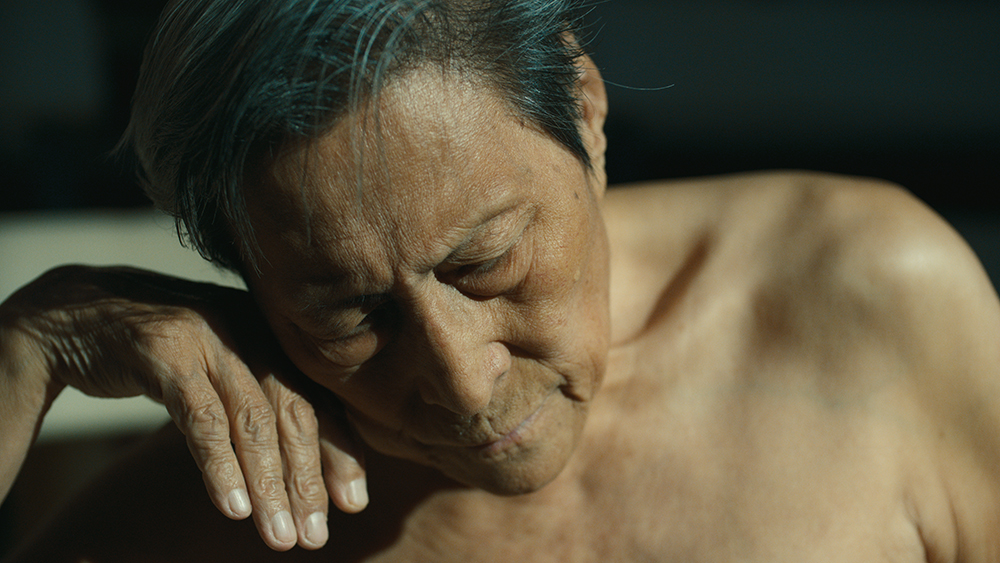Karin Chien Cannes Docs Man in Black
Award-winning US producer and distributor Karin Chien (“Robot Stories,” “Circumstance”), whose latest co-production, “Man in Black,” is one of two films by Chinese director Wang Bing running in Cannes’ official selection, shared her experience with the crowd during a masterclass at Cannes Docs, the Film Market section dedicated to documentary films.
“Man in Black” premiered at a special screening in Cannes on May 22. Wang’s other film selected in this year’s edition is main competition title “Youth.”
In the talk, moderated by Documentary Association of Europe co-founder Brigid O’Shea, Chien put on her distributor’s hat to talk about a job she said was “not pitched enough but [represented] some of the most meaningful work she [had] ever done.”
“To bring these films to the U.S., that otherwise would never have come here, to be able to connect the films with the audience and send every quarter back to the filmmakers – the filmmakers I work with [from mainland China, Hong Kong, and, more recently, Taiwan] cannot distribute in their own countries so they have no source of revenue from filmmaking where they live,” she said of her role as co-founder and president of dGenerate Films, a leading distributor of independent Chinese film in the U.S.
“Distribution is not complicated, it’s just that most people don’t understand it because it’s not taught in film schools: it’s not considered part of the filmmaking process,” she said, adding that hers was a different, self-taught journey after she had to distribute the first film she produced two decades ago, Greg Pak’s “Robot Stories.”
The key, said Chien, who is committed to supporting innovative voices that help build radical practices of ethical filmmaking, is to identify the audiences and how they are being cultivated.
“It requires time and labor to do that, but I recommend it, because when you learn how distribution works, you learn how to reach your audiences in specific markets, specific territories, and I couldn’t produce without that knowledge. It sounds complicated, but I promise you it’s a thousand times easier than actually making a movie,” she smiled. “We need more and new and different structures of distribution – but people are channelled into doing a certain thing.”
“Man in Black” is a case in point that illustrates how Chien seeks what she calls “adjacent markets”: Shot on a Paris stage, it is an hour-long portrait of 86-year-old Wang Xilin, one of China’s most important modern classical composers who lives in exile in Germany, aimed at the art market.
“That was really interesting to me because it didn’t matter so much what the format was, but I could see a path to revenue that was much stronger than if we made a doc and tried to sell it on the global market. So, we got involved through development financing, and the revenue that comes through the art gallery will go into developing and financing the feature-length version of the same topic. It’s an experiment but it feels like a much safer bet than just starting with a doc,” she explained.
Chien cited as another example a set of oral histories which she optioned in her role as partner at independent production company Louverture Films. Instead of spending the development funding on a series bible and pilot episode, she chose, for the same cost, to create a graphic novel.
“[The novel] is its own piece of IP, so that means we can sell it as underlying rights to the series, plus it will find its own audience through the graphic novel distribution channels: it’s about looking at how we use our fund to invest in IP that will meet our audiences where they are, because they are not in the movie theatres anymore like when we started,” she said.
Within a rapidly changing landscape, where both the definition of what makes a documentary and the ways in which it will reach its audience are ever evolving, Chien noted that docs, “especially American ones,” are moving very close to fiction, citing her upcoming project with Native American visual artist Sky Hopinka, of which she said: “It’s hard to say it’s a doc, you could say equally that it’s a fiction, and hybrid is not the right word.”
“That’s a key draw of being able to work across formats,” she added. “The thing is that markets have categories. As a producer, you have a vision and a plan about which market you’re going to be in, having made this uncategorizable work.”
Cannes Docs runs as part of Cannes Film Festival’s Marché du Film until May 23.

